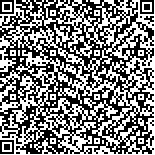本文已被:浏览 810次 下载 2377次
Received:December 03, 2022 Published Online:June 20, 2023
Received:December 03, 2022 Published Online:June 20, 2023
中文摘要: 在发现驱动肿瘤发生和进展的分子改变后非小细胞肺癌(NSCLC)的治疗策略发生了革命性的变化。针对表皮生长因子受体(EGFR)突变和间变性淋巴瘤激酶(ALK)融合的靶向药物治疗已经成为EGFR突变和ALK融合晚期NSCLC患者的一线标准治疗方案。随着靶向药物的快速发展,针对c-ros原癌基因1(ROS1)融合、间充质上皮转移因子(MET)异常、原癌基因(RET)融合、人类表皮生长因子受体2(HER2)突变和B-raf原癌蛋白(BRAF)V600E突变等罕见驱动基因突变的临床研究进展迅速,为NSCLC患者的治疗提供更多选择的机会。
Abstract:After discovering the molecular changes leading to cancer occurrence and progression, the revolutionary changes have occurred in the treatment of non-small cell lung cancer (NSCLC) . The targeted therapy has become the first-line treatment for the advanced NSCLC patients with epidermal growth factor receptor (EGFR) mutation and anaplastic lymphoma kinase (ALK) fusion gene. With the rapid development of targeted drugs, the clinical studies on uncommon mutations or fusions of ROS1, MET, RET, HER2 and BRAF V600E in NSCLC are progressing rapidly, providing more options and opportunities for treatment in the patients with NSCLC.
keywords: Non-small cell lung cancer Driver gene, rare Molecular targeted therapy Epidermal growth factor receptor C-ros proto oncogene 1 Mesenchymal epithelial transfer factor Proto oncogenes Human epidermal growth factor receptor 2 B-raf oncoprotei
文章编号: 中图分类号:R734.2 文献标志码:A
基金项目:国家自然科学基金面上项目 (82273162)
引用文本:
